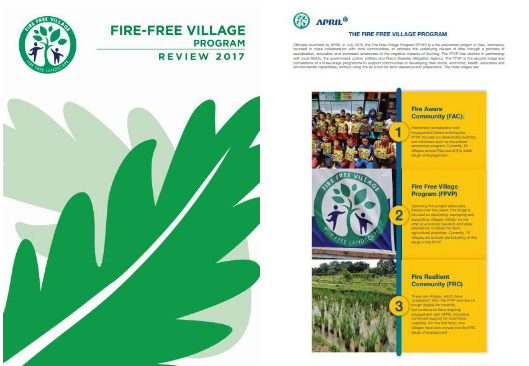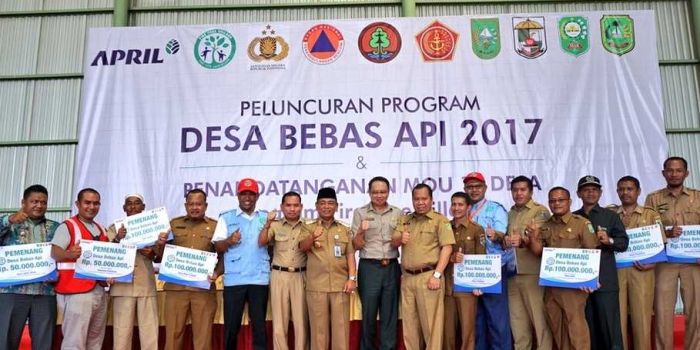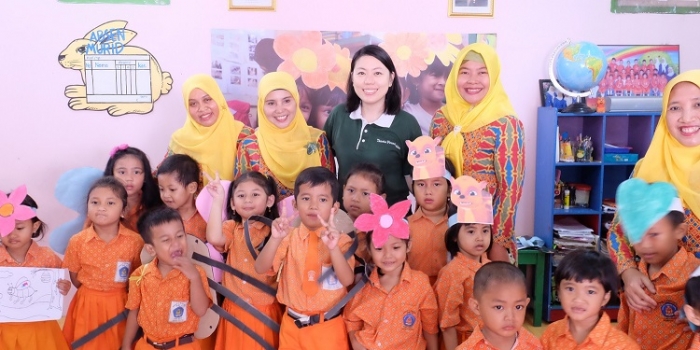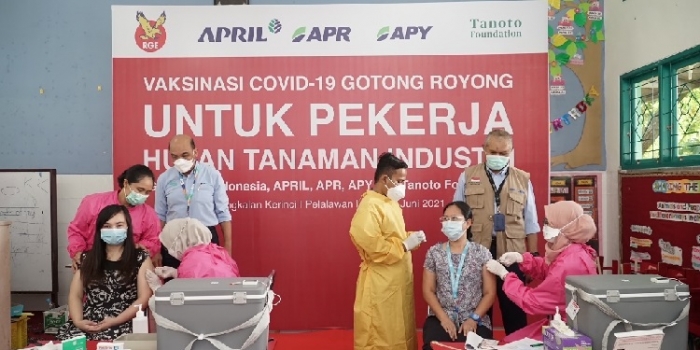A record 15 of 18 villages in APRIL’s Fire Free Village Program (FFVP) will receive the full award for not using fire as a tool in their approach to community land management in 2017, a significant milestone in their continuing journey towards fire resilience. Now on its third year, FFVP is a systematic and targeted approach to engage communities for a long-term solution to the problem of fire and haze in Indonesia.
The annual review, conducted by independent NGO Carbon Conservation noted that 2017’s area of burnt land decreased from 390 hectares in 2016 to 159.3 hectares in 2017, a year-on-year decrease of 42.6%. Carbon Conservation also remarked that the recorded fires occurred in remote areas, outside of village control and were difficult to contain.
FFVP is the second stage and the cornerstone of a three-stage programme to support communities to develop their social, economic, health, education and environmental capabilities, as well as discouraging the use of fire as a tool for land clearance and preparation. Villages begin with the Fire Aware Communities (FAC) stage that focuses on relationship building such as conducting school awareness programmes to highlight the negative impact of burning. FAC is succeeded by communities’ two-year participation in FFVP, a stage which has the following five elements:
- A No Burn Village Rewards scheme granting funding for infrastructure projects for communities that do not burn on land areas within their control
- Recruitment of a Village Crew Leader to act as fire prevention advocates and fire suppression specialists at the village level
- Provision of Agricultural Assistance to help villages adopt sustainable agricultural alternatives and capabilities, including providing mechanical land clearing tools
- Continuation of Community Fire Awareness programmes
- The Installation of Air Quality Monitoring equipment in and around APRIL concession areas
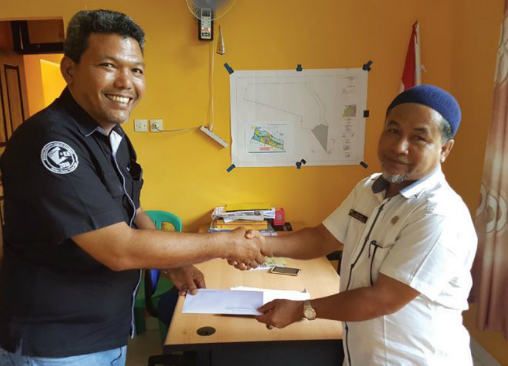
Fire Prevention Manager Sailal Arimi awarding a full No Burn Village Reward for 2017 to Langgam village head Pak Maitizan
APRIL’s Strategic Fire & Protection Manager Craig Tribolet remarks that this result demonstrates communities’ acceptance of FFVP’s approach and importance. “The rewards are an important indicator that communities are experiencing the full value of the programme. It shows that education and capability building elements that encourage communities to take ownership and become fire resilient are working,” he says.
Tribolet also notes that the success is the result of continued engagement with various stakeholders in the landscape. In running FFVP, APRIL partners with local NGOs, the government, police, military and Riau’s Disaster Mitigation Agency. “It’s important to acknowledge the support of government, whose increased focus on fire prevention and law enforcement has helped generate behaviour change at the village level.”
Since its establishment in 2014, FFVP has partnered with 27 villages, identified through a fire risk assessment process. In 2017, nine new villages were added bringing the total area covered by the project to 622,112 hectares in the Riau Province.
Click here to read the full report.
